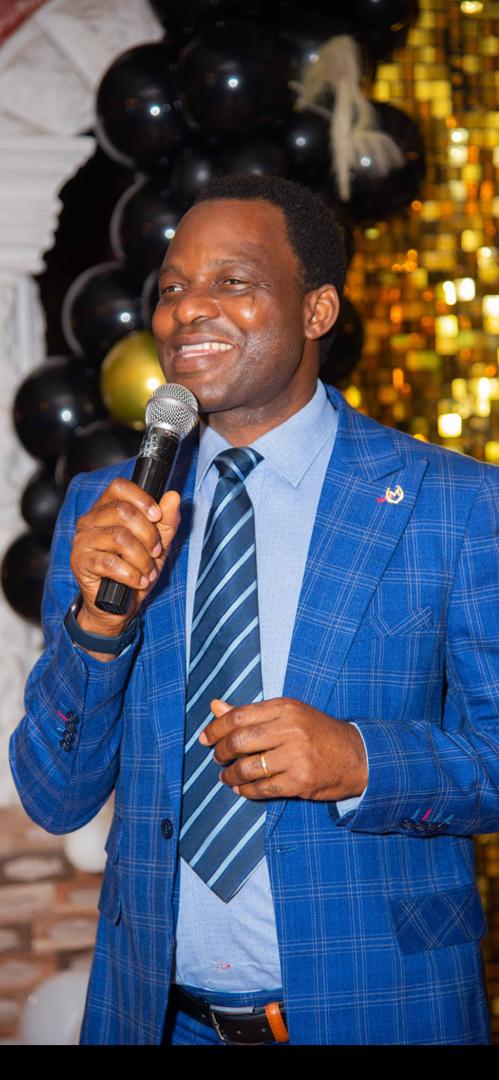Addressing Key Educational Gaps for a Brighter Future was the topic during the mupun education summit 2024 which took place at Abwor Dyis on the 11December, 2024,
The chairman of the occasion, Mr. Jonathan Gukut, Director, Logistics at General and Health Logistics International Limited, Nigeria, Abuja & PA to HE Chief Prof Dr. Patrick Sunday Dakum in his keynote address said “teachers are the backbone of any education system, yet many lack access to modern training and development opportunities”
According to Mr. Gukut, education is one of the foundamental human right and yet many children are deprived of this privilege due to inadequate school , poor infrastructure, and lack of Qualified teachers
Read the speech in full:
Keynote Address
Presented by the Chairman of the Occasion, Mr. Jonathan Mapring Gukut
(Director, Logistics at General and Health Logistics International Limited, Nigeria, Abuja & PA to HE Chief Prof Dr. Patrick Sunday Dakum)
*December 11, 2024, at Abwor/Dyis, Mupun Chiefdom, Pankshin LGA, Plateau State, Nigeria
Title: Addressing Key Educational Gaps for a Brighter Future
Distinguished guests, esteemed educators, community members, and my dear youths,
It is with great honor and a profound sense of responsibility that I stand before you today to deliver this keynote address at the Mupun Education Summit 2024. I commend the Mupun Youths Education Committee for their vision, dedication, and commitment to addressing the critical gaps in our education system—a task that is vital to the sustainable development of our beloved community.
Education is not merely a tool; it is the very bedrock upon which nations construct their progress. It has the power to transform lives, strengthen communities, and drive societal advancement. Despite its significance, education in our community continues to face profound challenges that restrict opportunities and growth. Today, I will outline these challenges and propose actionable strategies to address them.
- Access to Quality Education
Education is a fundamental human right, yet many children in our community are deprived of this privilege due to inadequate schools, poor infrastructure, and a lack of qualified teachers.
Action Points:
Advocate for the construction and renovation of schools, particularly in rural and underserved areas.
Partner with government bodies, NGOs, and the private sector to recruit and train more qualified teachers.
Provide scholarships and financial aid for children from economically disadvantaged families to ensure access to education.
- Educational Infrastructure and Resources
Our schools face significant resource deficits, including the lack of textbooks, laboratory equipment, and digital tools. These limitations impede our students’ ability to compete effectively with their peers nationwide and globally.
Action Points:
Mobilize community efforts to provide schools with the basic materials necessary for learning.
Collaborate with technology firms to introduce digital tools and solutions into our classrooms.
Establish well-equipped libraries and resource centers for students and educators.
- Teacher Training and Development
Teachers are the backbone of any education system, yet many lack access to modern training and development opportunities. Continuous professional development is essential for maintaining high educational standards.
Action Points:
Organize workshops, seminars, and certification programs to enhance teacher capabilities.
Encourage mentorship programs where experienced educators can guide newer teachers.
Advocate for improved teacher remuneration to attract and retain qualified professionals.
- Girl Child Education
Cultural, economic, and societal barriers continue to deny many young girls the opportunity to receive an education. Addressing this inequality is critical to breaking the cycle of poverty and empowering future generations.
Action Points:
Conduct community awareness campaigns emphasizing the importance of educating the girl child.
Establish scholarship programs and mentorship initiatives targeted specifically at young girls.
Ensure safe and supportive learning environments to encourage girls’ participation in education.
- Vocational and Technical Training
Not every youth thrives in traditional academic settings, and the lack of vocational and technical training leaves many without employable skills.
Action Points:
Develop vocational training centers focused on practical skills and entrepreneurship.
Partner with industries to create apprenticeship and internship programs for youths.
Integrate vocational and technical training into school curricula to prepare students for diverse career paths.
- Digital Literacy and Innovation
The lack of digital literacy in our community limits our youths’ ability to compete in a technology-driven world. Bridging this gap is essential for future success.
Action Points:
Introduce ICT training programs for students and educators.
Establish computer labs and provide internet access in schools.
Promote STEM (Science, Technology, Engineering, and Mathematics) education to encourage innovation and critical thinking.
- Educational Policy Advocacy
Many of these challenges stem from systemic issues that require policy reform. As a community, we must advocate for policies that prioritize education and address the needs of marginalized populations.
Action Points:
Lobby for increased government funding and equitable distribution of educational resources.
Advocate for inclusive policies that address the unique needs of rural and underserved communities.
Build a coalition of youths to monitor and evaluate the implementation of educational reforms.
Closing Remarks
As we reflect on these critical issues, I extend my heartfelt appreciation to the Mupun Youths Education Committee for organizing this summit. Together, we have an opportunity to address these challenges and chart a course toward a brighter future for our community.
Addressing these educational gaps is not merely an option but an obligation. Education is a right, not a privilege. By uniting the efforts of the government, private sector, NGOs, and community members, we can create an educational system that empowers every child and unlocks the full potential of our society.
Let us commit ourselves to this noble cause with determination, knowing that an investment in education today is a guarantee of a prosperous tomorrow for all.
Thank you for your attention, your commitment, and your shared vision. I wish you all a Merry Christmas and a prosperous New Year.
count | 70

Recent Comments
Mwanchuel Daniel PamMarch 8, 2024 at 11:06 pm
Bob WayasNovember 6, 2023 at 5:30 am
JosephNovember 5, 2023 at 3:47 am